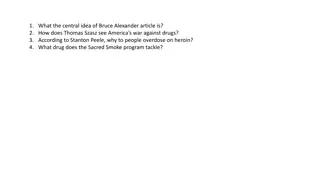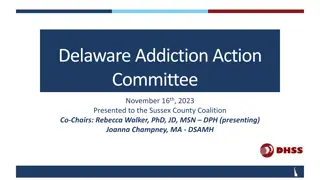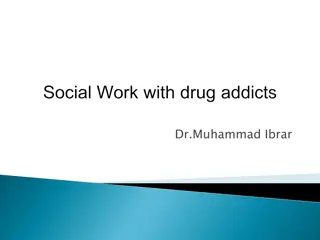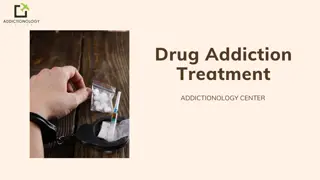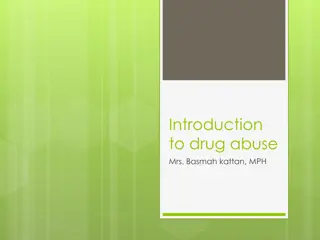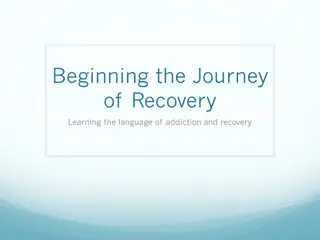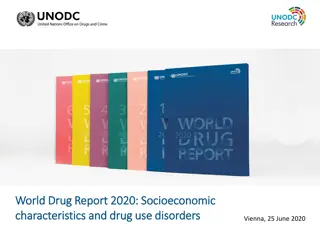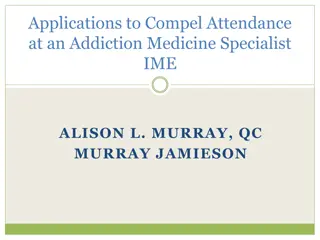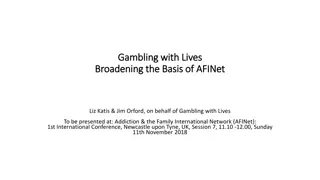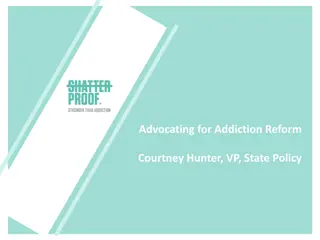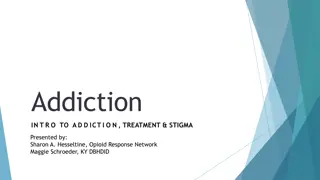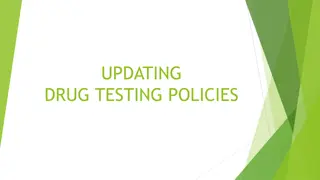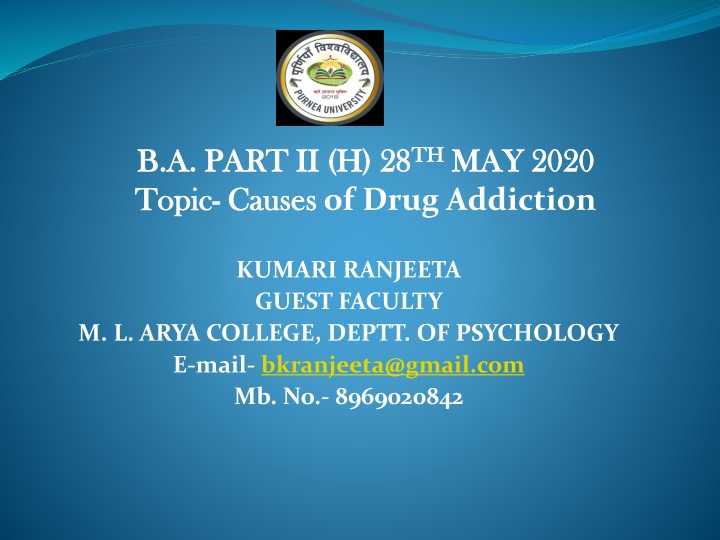
Causes of Drug Addiction: Biological, Psychological, and Environmental Factors
Explore the multifaceted causes of drug addiction, encompassing biological (genes, liver enzymes), psychological (personality traits, trauma), and environmental factors (family dynamics, peer influence). Learn how factors like genetics, mental health, and accessibility contribute to the risk of substance use disorders.
Download Presentation

Please find below an Image/Link to download the presentation.
The content on the website is provided AS IS for your information and personal use only. It may not be sold, licensed, or shared on other websites without obtaining consent from the author. If you encounter any issues during the download, it is possible that the publisher has removed the file from their server.
You are allowed to download the files provided on this website for personal or commercial use, subject to the condition that they are used lawfully. All files are the property of their respective owners.
The content on the website is provided AS IS for your information and personal use only. It may not be sold, licensed, or shared on other websites without obtaining consent from the author.
E N D
Presentation Transcript
B.A. PART II (H) 28 B.A. PART II (H) 28TH Topic Topic- - Causes Causes of Drug Addiction TH MAY 2020 MAY 2020 KUMARI RANJEETA GUEST FACULTY M. L. ARYA COLLEGE, DEPTT. OF PSYCHOLOGY E-mail- bkranjeeta@gmail.com Mb. No.- 8969020842
28 MAY 2020 B.A. PART II (H) PAPER III,UNIT IV (UNDERSTANDING DEVIANT BEHAVIOUR) CAUSES OF DRUG ADDICTION There are different causes of Drug Addiction: Biological factors:- Genes - Estimates vary but scientists find that genetic factors contribute about half the risk for developing a substance use disorder. Physiological factors: Variations in liver enzymes that metabolize substances are known to influence one's risk of alcohol use disorder. Gender : Males are more likely to develop substance use disorder than females, although the so-called gender gap may be narrowing for alcohol use disorder, and females are more subject to intoxication effects at lower doses of alcohol.
28 MAY 2020 B.A. PART II (H) PAPER III,UNIT IV (UNDERSTANDING DEVIANT BEHAVIOUR) Psychological Factors:- Personality factors: Both impulsivity and sensation seeking have been linked to substance use and gambling disorders. Impulsivity may be particularly related to the risk of relapse. Trauma and abuse: Early exposure to significant adverse experience can contribute to the development of substance use disorders by overwhelming an individual's coping ability, perhaps by sensitizing brain pathways of alarm/distress, or by adding to the burden of stress.
28 MAY 2020 B.A. PART II (H) PAPER III,UNIT IV (UNDERSTANDING DEVIANT BEHAVIOUR) Mental health factors: Conditions such as depression, anxiety, attention deficit disorder, and post traumatic stress disorder (PTSD)increase the risk of addiction. Difficulties managing strong emotions are also linked to substance use. Environmental Factors:- Family factors:While strong family relationships have been shown to protect against substance use disorders, several aspects of family functioning or circumstances can contribute to addiction risk. Having a parent or sibling with an addictive disorder raises the risk, as does a lack of parental supervision or support.
28 MAY 2020 B.A. PART II (H) PAPER III,UNIT IV (UNDERSTANDING DEVIANT BEHAVIOUR) Poor-quality or troubled parent-child relations and family disruptions such as divorce also add to one's risk, as does sexual, physical, or emotional abuse. Research shows that marriageand taking on child-raising responsibilities mitigate the risk of addiction. Accessibility factors: Easy availability of alcohol or other substances in one s home, at school or work, or in one s community increases the risk of repeated use. Peer group: As profoundly social animals, people are strongly influenced by their peers and, in generally seeking to be liked by them, may adopt many of their behaviors, particularly during adolescence. Positive social relationships, on the other hand, are known to strongly protect against substance use.
28 MAY 2020 B.A. PART II (H) PAPER III,UNIT IV (UNDERSTANDING DEVIANT BEHAVIOUR) Employment status: Having a job, and developing the skills for employment, exerts pressure for stability and provides financial and psychological rewards that mitigate addiction risk. Certain people are at risk for substance abuse and for developing addiction disorders. Their vulnerability might originate from a variety of factors, including their genetic endowment, family background, psychological factors, and social norms. Overall, these factors make the person value drug use highly, even though the decision might be against their long-term interests. Please note that a risk factor for one person may not be the same for another. Most people at risk for drug abuse do not become addicted.


